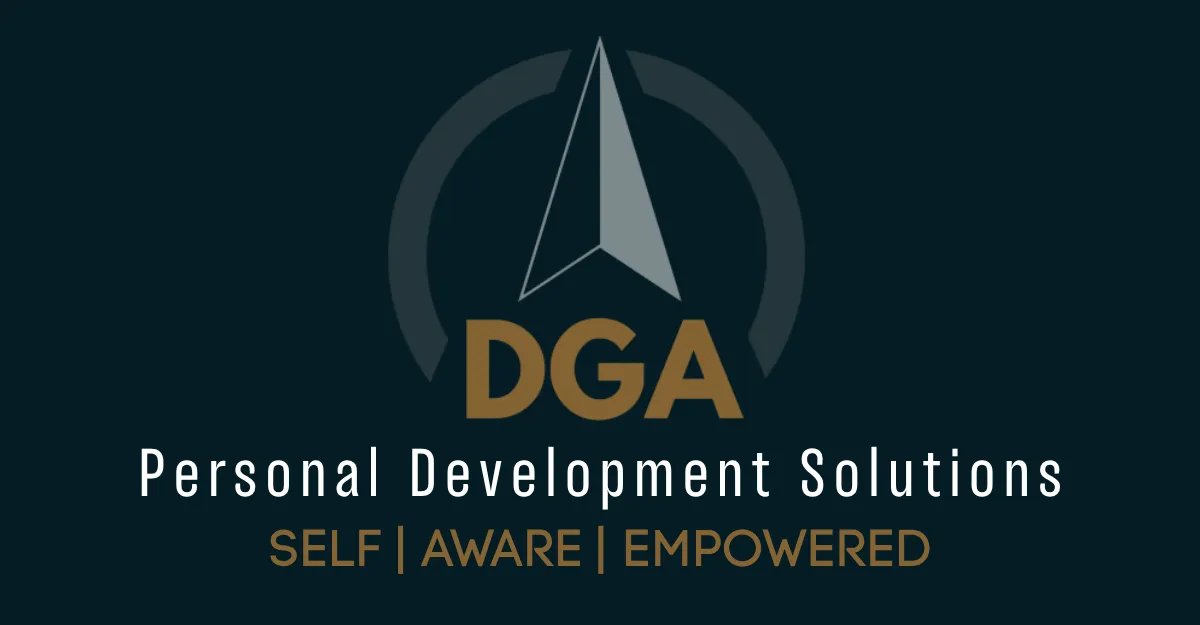Stop Selling
Like Everyone Else!
Discover Your Unique Realtor Style
Move beyond generic scripts and leverage your innate strengths to build a business you love.
Stop Selling Like Everyone Else.
Discover Your Unique Realtor Style
Move beyond generic scripts and leverage your innate strengths to build a business you love.
Tired of Sales Training That Doesn't Feel Like You?
If you're a new Realtor, you've maybe been told there's only one path to success. But what if that path isn't your path?

Unnatural Scripts
Trying to follow formulas and dialogues that don't match your personality, leaving you feeling phony and exhausted after every call.

Fierce Competition
Struggling to stand out in a crowded market, making it difficult to consistently attract the clients you are meant to serve.

Effort Without Result
Despite long hours and hard work, your pipeline is inconsistent, preventing you from reaching the success you truly deserve.
Your Strengths Are Your Greatest Business Asset
Success in real estate doesn't come from copying someone else's formula; it comes from mastering your own. I help you move beyond generic scripts and sales tactics to build a business that is authentic, effective, and uniquely yours.

Discover Your Natural Style
We begin by identifying your innate strengths and communication style using proven tools like the DISC assessment. Knowing your strengths and style forms the foundation of a business that feels natural, not forced.

Build Your Authentic Brand
Once you understand your unique selling DNA, I'll help you craft a personal brand and value proposition that stands out, deeply resonates with your ideal clients, and builds genuine trust and authority

Initiate Your Plan
We translate those insights into a practical, actionable plan for lead generation, client communication, and negotiation, turning your strengths into consistent results and commissions.
Have You Ever Done a Values Discovery? Have you Ever Wondered What Were the Undlying Motivators to Why You Do Things the Way You Do?
You Can Explore Those Ideas Now By Taking Our FREE Values Quiz.
The Next Move

Does Sales Anxiety Hold You Back from Success?
“If you aren't making mistakes, then your not doing anything" ~ John Wooden
Earlier this week, my friend, Greg DeMarco and I recorded the first episode of our new podcast. Yay! The topic we discussed was 'Sales Anxiety'. Having been in sales for more than 40 years, I can remember going through times where I had lost confidence and experienced a time of sales anxiety. Greg was able to share from his 30+ years of experience as well. The topic brings up a number of questions, so I wanted to provide some answers to the questions below. I have also included Greg and My podcast episode here. We talk about a good number of these issues.
1. What is sales anxiety?
Sales anxiety is the feeling of stress, worry, or unease that a salesperson experiences when thinking about or engaging in sales-related activities. This can stem from a fear of rejection, lack of confidence in one's abilities, or a high-pressure sales environment.
2. What causes sales anxiety?
Sales anxiety can be caused by various factors, including fear of rejection, lack of experience, high-pressure sales environments, unrealistic expectations, or even personal beliefs about the importance of making a sale.
3. How can I overcome sales anxiety?
Overcoming sales anxiety involves building confidence in your sales skills, setting realistic goals, practicing effective communication techniques, and developing healthy coping mechanisms for stress. Additionally, seeking support from colleagues or mentors, and focusing on the value you provide to customers can help alleviate anxiety.
4. Is sales anxiety common among salespeople?
Yes, sales anxiety is common among salespeople, as the nature of the profession often involves facing rejection, meeting targets, and dealing with high-pressure situations. However, the severity of anxiety may vary from person to person.
5. How does sales anxiety affect performance?
Sales anxiety can negatively impact a salesperson's performance by causing distractions, reducing focus, and leading to avoidance of sales activities. This can result in missed opportunities, reduced productivity, and lower sales numbers.
6. Can sales anxiety be a sign of a more significant mental health issue?
While sales anxiety is often specific to sales-related situations, it can sometimes be a symptom of a more significant mental health issue, such as generalized anxiety disorder or social anxiety disorder. If you believe your anxiety is excessive or impacting other areas of your life, it is essential to consult a mental health professional.
7. Are there any helpful tools or techniques to manage sales anxiety?
Yes, there are several tools and techniques available to manage sales anxiety, including mindfulness exercises, deep breathing techniques, visualization, and positive affirmations. Additionally, setting realistic goals, seeking support, and focusing on the value you provide to customers can help manage anxiety.
8. How can I support a colleague experiencing sales anxiety?
To support a colleague with sales anxiety, offer empathy and understanding, provide guidance or mentorship, and encourage them to seek professional help if necessary. You can also share your own experiences and coping mechanisms, as well as help create a supportive and non-judgmental work environment.
9. Can sales training help reduce sales anxiety?
Yes, sales training can help reduce sales anxiety by providing salespeople with the knowledge, skills, and strategies needed to succeed in their roles. This, in turn, can boost confidence and provide a sense of control, which can alleviate anxiety.
10. When should I seek professional help for sales anxiety?
If sales anxiety is significantly impacting your performance, well-being, or other areas of your life, it is essential to seek professional help. A mental health professional can help you identify the underlying causes of your anxiety and develop a personalized treatment plan to address your specific needs.
If I can be of any help to you in your sales experience, please be sure to let me know or check out some of the free resources we have on our website. Thanks.
The Realtors Compass

Does Sales Anxiety Hold You Back from Success?
“If you aren't making mistakes, then your not doing anything" ~ John Wooden
Earlier this week, my friend, Greg DeMarco and I recorded the first episode of our new podcast. Yay! The topic we discussed was 'Sales Anxiety'. Having been in sales for more than 40 years, I can remember going through times where I had lost confidence and experienced a time of sales anxiety. Greg was able to share from his 30+ years of experience as well. The topic brings up a number of questions, so I wanted to provide some answers to the questions below. I have also included Greg and My podcast episode here. We talk about a good number of these issues.
1. What is sales anxiety?
Sales anxiety is the feeling of stress, worry, or unease that a salesperson experiences when thinking about or engaging in sales-related activities. This can stem from a fear of rejection, lack of confidence in one's abilities, or a high-pressure sales environment.
2. What causes sales anxiety?
Sales anxiety can be caused by various factors, including fear of rejection, lack of experience, high-pressure sales environments, unrealistic expectations, or even personal beliefs about the importance of making a sale.
3. How can I overcome sales anxiety?
Overcoming sales anxiety involves building confidence in your sales skills, setting realistic goals, practicing effective communication techniques, and developing healthy coping mechanisms for stress. Additionally, seeking support from colleagues or mentors, and focusing on the value you provide to customers can help alleviate anxiety.
4. Is sales anxiety common among salespeople?
Yes, sales anxiety is common among salespeople, as the nature of the profession often involves facing rejection, meeting targets, and dealing with high-pressure situations. However, the severity of anxiety may vary from person to person.
5. How does sales anxiety affect performance?
Sales anxiety can negatively impact a salesperson's performance by causing distractions, reducing focus, and leading to avoidance of sales activities. This can result in missed opportunities, reduced productivity, and lower sales numbers.
6. Can sales anxiety be a sign of a more significant mental health issue?
While sales anxiety is often specific to sales-related situations, it can sometimes be a symptom of a more significant mental health issue, such as generalized anxiety disorder or social anxiety disorder. If you believe your anxiety is excessive or impacting other areas of your life, it is essential to consult a mental health professional.
7. Are there any helpful tools or techniques to manage sales anxiety?
Yes, there are several tools and techniques available to manage sales anxiety, including mindfulness exercises, deep breathing techniques, visualization, and positive affirmations. Additionally, setting realistic goals, seeking support, and focusing on the value you provide to customers can help manage anxiety.
8. How can I support a colleague experiencing sales anxiety?
To support a colleague with sales anxiety, offer empathy and understanding, provide guidance or mentorship, and encourage them to seek professional help if necessary. You can also share your own experiences and coping mechanisms, as well as help create a supportive and non-judgmental work environment.
9. Can sales training help reduce sales anxiety?
Yes, sales training can help reduce sales anxiety by providing salespeople with the knowledge, skills, and strategies needed to succeed in their roles. This, in turn, can boost confidence and provide a sense of control, which can alleviate anxiety.
10. When should I seek professional help for sales anxiety?
If sales anxiety is significantly impacting your performance, well-being, or other areas of your life, it is essential to seek professional help. A mental health professional can help you identify the underlying causes of your anxiety and develop a personalized treatment plan to address your specific needs.
If I can be of any help to you in your sales experience, please be sure to let me know or check out some of the free resources we have on our website. Thanks.


